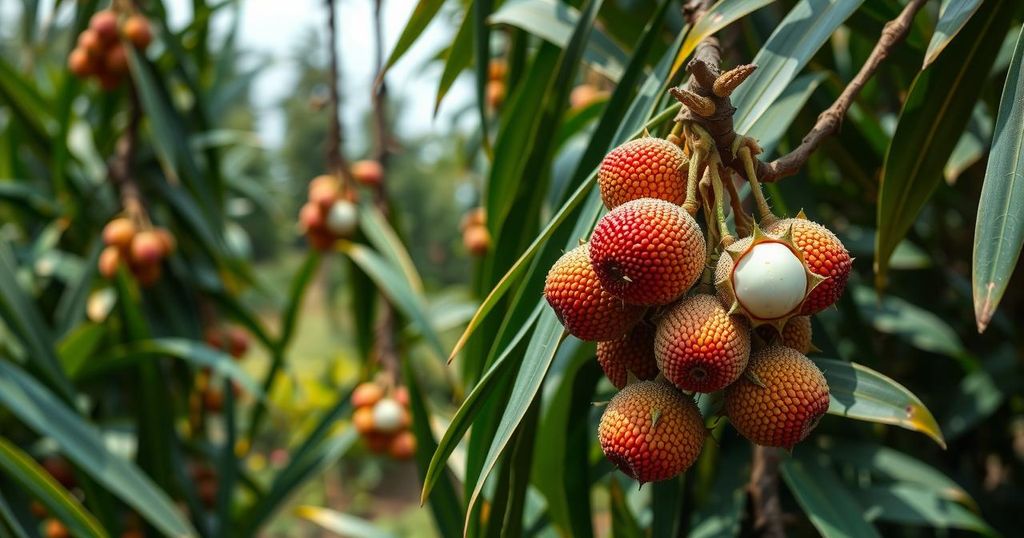Madagascar’s Lychee Industry Faces Major Production Crisis Amid Early Harvest

Madagascar’s lychee harvest season faces a crisis with significant drop forecasts in production. High rainfall impacted growth, causing early ripening and bloom loss. Solutions under consideration include adjusting export quotas and sourcing from remote areas. The urgency for sustainable practices rises amid unpredictable weather challenges affecting agriculture.
The lychee harvest season in Madagascar, the world’s leading producer of the lychee fruit, is currently underway but growers are facing a significant crisis due to projected drops in production. As the season began, four refrigerated vessels were dispatched to Madagascar’s eastern coast for collection. However, in the port city of Tamatave, industry leaders are concerned about the steep decline in yields caused by unusually early ripening, which could result in severe economic repercussions. Judith Riccati, deputy executive director of the Tamatave Horticultural Technical Centre, identified multiple factors influencing this situation, including excessive rainfall earlier this year disrupting plant growth and causing premature flowering and bloom loss. Additionally, she noted the trees are aging and less responsive to necessary climatic changes. To tackle the impending shortfall, agricultural engineers are examining potential solutions, such as reducing the export quota or sourcing lychees from remote locations, although challenges related to logistics and loading times remain. The urgency for sustainable solutions is heightened as unpredictable weather continues to affect the agricultural sector.
Madagascar’s significance as the top producer of lychee fruit is tied to its exports primarily directed towards the European market during the end-of-year season. However, the current harvest season has revealed alarming production issues linked to climatic anomalies, which threaten both the economic stability of growers and the supply chain for this highly regarded fruit. Understanding the environmental factors and the possible response strategies is crucial for stakeholders in the industry. The exploration of solutions to mitigate these impacts reflects the necessity for adaptability in the face of changing agricultural conditions.
In summary, Madagascar’s lychee growers are encountering a serious crisis during the current harvest season, primarily due to climatic challenges resulting in a notable reduction of yields. The industry is under pressure to identify innovative solutions to address the production shortfall, while the urgent call for sustainable agricultural practices becomes increasingly essential. As stakeholders navigate these difficulties, it remains critical to balance export demands with the realities of changing environmental conditions.
Original Source: www.rfi.fr






